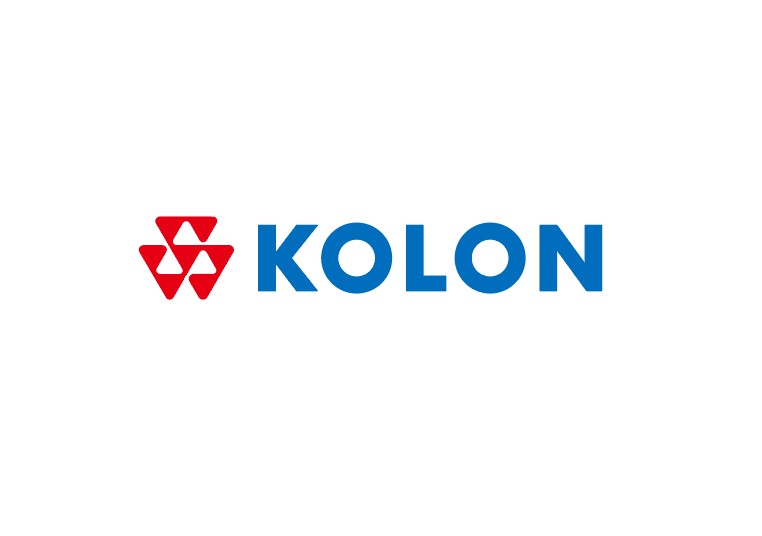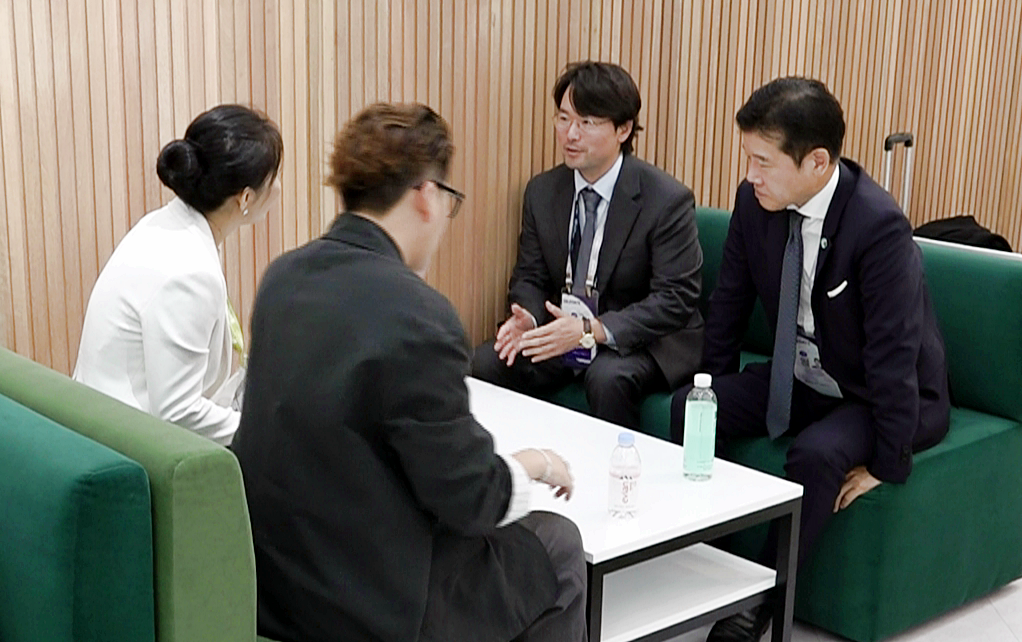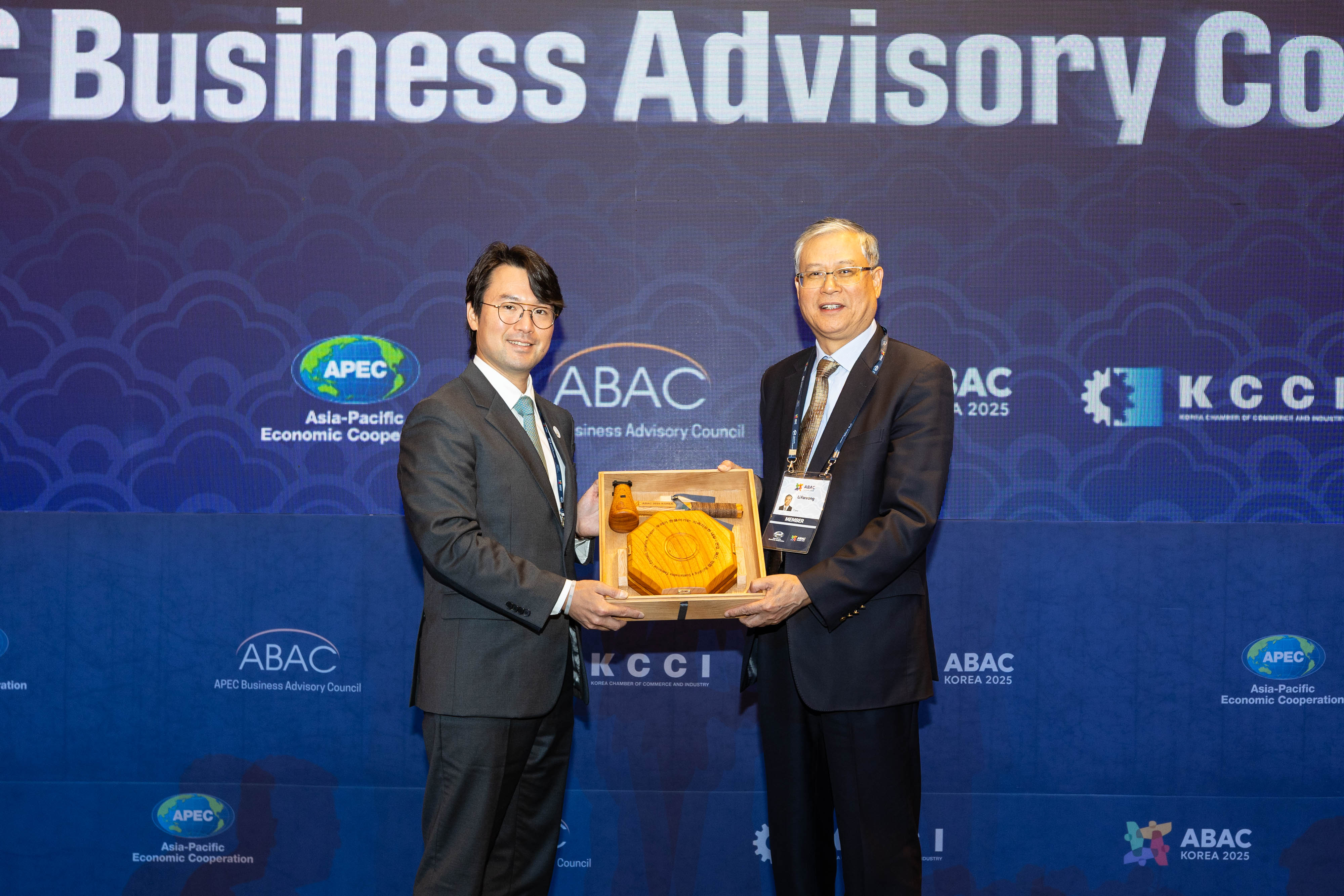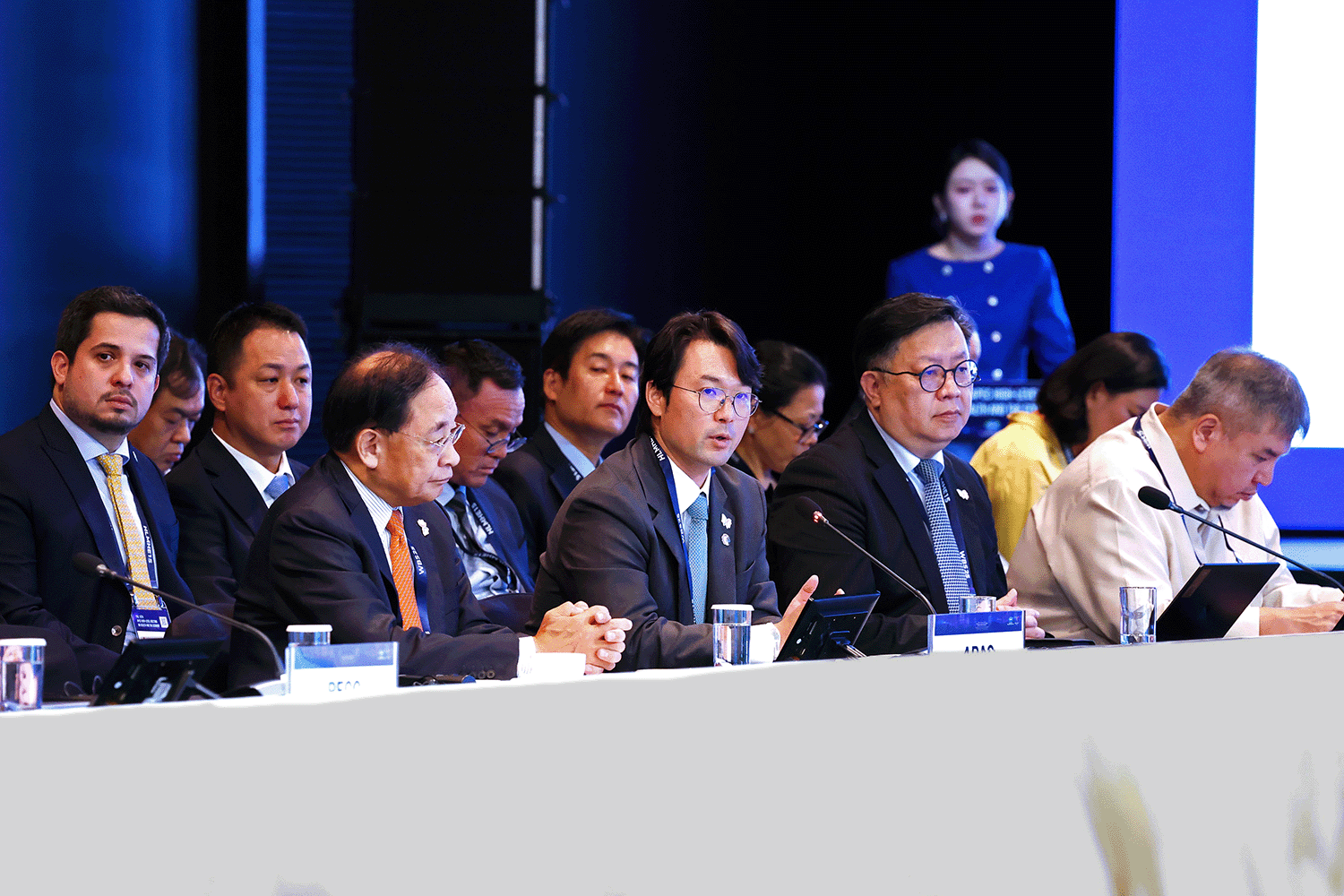Kolon Vice Chairman Lee Kyu-ho Lays Foundation for APEC Future Healthcare Roadmap
KOLON
2025.10.27
▶ ABAC BioHealthcare Working Group (BHWG) Chair Lee Kyu-ho's year-long efforts culminate in Korea-led ‘Smart and Inclusive Healthcare Roadmap’
▶ Proposed as a key agenda item for the Gyeongju APEC Summit through ABAC recommendations
▶ “Building sustainable and resilient healthcare systems through digital innovation and enhanced inclusivity” emphasized
Kolon Group announced on the 27th that the Bio-Healthcare Working Group (BHWG), chaired by Vice Chairman Lee Kyu-ho, had finalized a ‘Smart and Inclusive Healthcare Roadmap’ to be proposed to the leaders of the member economies at the 4th meeting of the APEC Business Advisory Council (ABAC) held in Busan.
Vice Chairman Lee has chaired the BHWG, newly established within ABAC this year, leading discussions on healthcare-related issues. The BHWG has set agendas across four key areas: ▲Accelerating biotech innovation ▲Connecting health networks ▲Closing inequalities in healthcare ▲Public-private partnerships. The roadmap incorporates the outcomes of these discussions.
The BHWG meeting held at Ananti Cove in Busan featured participation from global biohealthcare experts including Ted Chang, Vice Chair of the Working Group and Taiwan ABAC member and CTO of Quanta Computer; Jun Suzuki, Japan ABAC member and Special Advisor to Teijin Ltd.; Julia Torreblanca, Peru ABAC member; Monica Wiley, Director of the U.S. APEC Center; Nicole Bukonich, Director of Policy at the U.S. APEC Center, among other global biohealthcare experts.
The meeting concluded discussions from three ABAC meetings held this year in Brisbane Australia, Toronto Canada, and Haiphong Vietnam, as well as the September APEC Health and Economy Senior Officials' Meeting, and approved the ‘Roadmap for Smart and Inclusive Healthcare’ led by ABAC Korea. Members emphasized the importance of strengthening corporate participation in regional healthcare policy-making processes. They also agreed to closely cooperate with the APEC Healthcare Working Group, which will be chaired by the Korean Ministry of Health and Welfare for the next two years.
Vice Chairman Lee Kyu-ho stated, “To address the aging population issue, a common challenge within the APEC region, the healthcare sector should be viewed not as a cost to be contained but as a strategic investment for the future.” He added, “The APEC economic system must build sustainable and resilient healthcare systems through digital innovation and enhanced inclusivity.” This roadmap includes public-private cooperation plans to address complex health challenges facing the APEC region, such as aging populations, rising chronic diseases, disparities in healthcare access, and fiscal sustainability. Specific implementation strategies spanning short-term (1-3 years), medium-term (3-7 years), and long-term (7-15 years) periods are also included in the recommendations to the APEC Leaders. They will be discussed as a key agenda item at the APEC Summit in Gyeongju.
The roadmap is structured around seven strategic pillars: establishing evidence-based policies using health data, expanding precision medicine through biotechnology, enhancing healthcare efficiency using artificial intelligence (AI), strengthening supply chain resilience, securing sustainable health financing, responding to the brain health crisis, and improving regulations to expand healthcare access.
Further, the roadmap proposed sharing public health data through the adoption of common international standards within APEC, as well as establishing a joint research platform and talent development programs to commercialize genome-based diagnostic and therapeutic technologies. It also presented a strategy to enhance medical professionals' capabilities by expanding training for non-developers using automated machine learning technology and integrating AI tools into clinical settings.
Other proposals included establishing real-time monitoring systems for pharmaceutical and medical device production to strengthen supply chain resilience; expanding community-based long-term care systems and enhancing digital inclusion to address aging populations; and developing finance, infrastructure, talent, and data-based cooperative models to tackle brain disorders such as dementia, autism, and ADHD.
Vice Chairman Lee Kyu-ho emphasized, “It is crucial to maintain ongoing dialogue with health policy makers following the completion of the roadmap,” adding, “I am confident that the newly-formed momentum surrounding the APEC healthcare agenda can be continuously strengthened.”
Meanwhile, Kolon Group has consistently invested in developing new biopharmaceuticals, such as TG-C, a cell and gene therapy for osteoarthritis, accumulating expertise in the biohealthcare sector. Kolon completed patient dosing for the TG-C Phase 3 clinical trial in the U.S. last July and is focusing its capabilities on submitting a New Drug Application (NDA) for TG-C to the U.S. FDA by 2027.
KOLON Group's mobile web is optimized for vertical screens.




